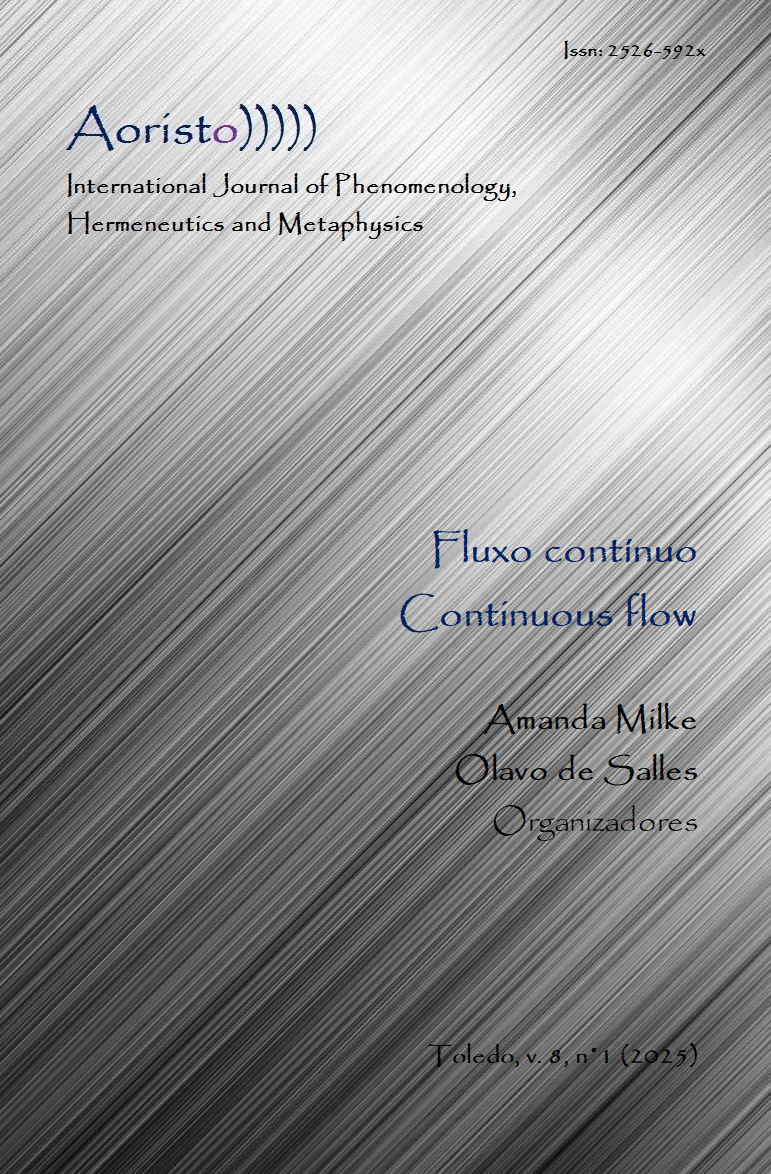"Sobre o tédio: ou da importância dos estados anímicos na filosofia de Heidegger" de Jesús Adrián Escudero
(o de la importancia de los estados de ánimo en la filosofía de Heidegger)
DOI:
https://doi.org/10.48075/aoristo.v8i1.35616Palavras-chave:
Tédio, Estado anímico, Abertura de mundo, TempoResumo
Os estados anímicos fundamentais como o tédio, a angústia e a serenidade abrem de maneira imediata toda uma situação vital, todo um horizonte de experiências, opiniões e desejos, que nunca conseguimos objetivar, que escapa a qualquer tentativa de determinação. A partir desta exposição geral, o presente trabalho aborda as três questões: em um primeiro momento se oferece um breve panorama das diferentes formas de abertura afetiva do mundo; em seguida se analisa o fenômeno concreto do tédio a partir das lições de 1929/30 Os conceitos fundamentais da metafísica; e finalmente se incide na maneira como os estados anímicos intervêm no estado apropriador do ser em Heidegger.
Downloads
Publicado
Como Citar
Edição
Seção
Licença

Este trabalho está licenciado sob uma licença Creative Commons Attribution-NonCommercial-NoDerivatives 4.0 International License.
Copyright Notice
1. I grant the AORISTO – International Journal of Phenomenology, Hermeneutics and Metaphysics the first publication of my article, licensed under Creative Commons Attribution (which allows sharing of work, recognition of authorship and initial publication in this journal).
2. I confirm that my article is not being submitted to another publication and has not been published in its entirely on another journal. I take full responsibility for its originality and I will also claim responsibility for charges from claims by third parties concerning the authorship of the article.
3. I also agree that the manuscript will be submitted according to the Aoristo’s publication rules described above.
License Creative Commons
This work is licensed under a Creative Commons Atribuição-NãoComercial-CompartilhaIgual 4.0 Internacional, which allows you to share, copy, distribute, display, reproduce, in whole or in part, for as long as there is no commercial purpose, and authors and source are cited.


